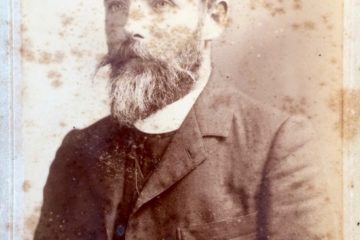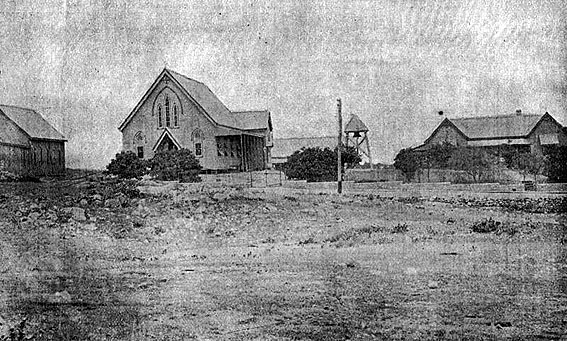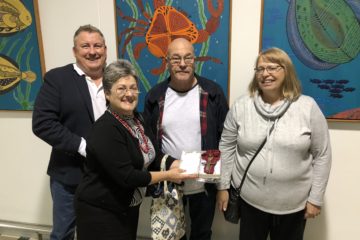Church parade, WA
ABOVE: Australian troops marching across a bridge on their way to Fremantle to embark for the Boer War in South Africa. This was a scene very familiar to the newly-ordained Canon David John Garland, a military chaplain to the West Australian contingents to the Boer War. This is Australian War Memorial Image No. P04182.001.
THE MOUNTED INFANTRY CONTINGENT.
CHURCH PARADE.
THE church parade at Karrakatta yesterday [ 21 January 1900 ] was made more than ordinarily attractive by the presence of companies from artillery and infantry forces in Perth and Fremantle in their bright uniforms, and the Headquarters Band.
Beside this array of military magnificence the members of the Mounted Infantry, in khaki unmentionable, blue jerseys, and slouch hats, looked like poor relations.
Notwithstanding their humble appearance they formed the central point of interest in the hollow square which was formed in the shade of a spreading gum tree, for the purpose of the service.
There was a very large attendance, and quite a thousand people had gathered round, when His Lordship, the Bishop of Perth [ Charles Owen Leaver Riley ], Dean Goldsmith [ Frederick William Goldsmith ], the Rev. D.J. Garland [ David John Garland ], chaplain of the force, commenced the service.
A choir had been provided for the occasion, but its efforts were scarcely distinguishable in the chorus of the vast congregation, who sang the hymns from beginning to end, more especially, “Onward Christian Soldiers” which with the telling accompaniment of the Headquarters Band rendered with intense earnestness and feelings.
His Lordship the Bishop at the conclusion of the service addressed a few words to the men of the Mounted Infantry.
He said that he would not tell them to do their duty, because they were sure to do that, but he told them to meet death bravely, if it came, with their face to the foe.
Dying on the battlefield was a more noble end than death resulting from sin, or a life of viciousness.
He said that he need not tell the men to be courageous, but he would ask the women to be courageous and bear bravely the departure of their husbands, sons, and brothers, that these who were going away might have less to bear.
If any of those present were killed on the battlefield they would have met death fighting for their country.
There would be no necessity to grieve for them but for the relations they left behind them.
For them he asked that those present would contribute liberally to the patriotic fund, for which a collection would then be made.
At the conclusion of the service a collection was made by the non-commissioned officers, and a substantial sum was collected.
The forces present were under the command of Colonel Gardiner [ Stephen Gardiner ], senior officer, and the other officers present were Majors Hope [ James William Hope ], Hobbs [ Joseph John Talbot Hobbs ], and Strickland [ John Charles StricklandJohn Alfred Ernest Humble, Fremantle Rifles ], Rose [ James Rose ], Munday [ James Henry Munday ] , Hurst [ Howard Edwin Hurst ] and Hughes [ David Hughes ]; Lieutenants Compton [ Edward Alfred Frederick Compton ], McMaster [ Robert Thompson McMaster, Second Mounted Infantry Regiment ] De Castilla [ John De Castilla ], Inglis [ Stanley Inglis ] and Goode [ James Goode ].
Including sixty members of the Mounted Infantry, about two hundred and fifty of all ranks attended the parade.’
– from page 5 of “The West Australian” (Perth, WA) of 22 January 1900.

ABOVE: Members of the Transvaal Contingent awaiting the train at Fremantle’s Karrakatta Station, Western Australia, late in 1899 or early 1900. This is Australian War Memorial Image No. P00044.037.


